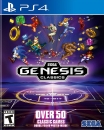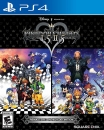For the longest of time, one of the biggest critiques that has always plagued Nintendo is "why can't they just make a powerful console that can get great 3rd party support like their competitors". Everyone for years especially during the Wii U era always thought Nintendo was the delusional one for not trying to compete with PS/Xbox when it comes to 3rd party support, even to this day I see a good amount of the general public question why Nintendo goes down this route of making underpowered consoles that lack big 3rd party games and only have Nintendo games, to many people it just seems like Nintendo is out of touch creating an underpowered consoles with a lack of 3rd party support. But is it true that Nintendo were the ones out of touch? Or was it the general public who doesn't understand the video game market like Nintendo does?
Since the NES, Nintendo has always been very skeptical of overwhelming 3rd party support. Back with the NES in the 1980s it made sense why. In the previous generation Atari gave way too much control to 3rd party publishers to the point where many inexperienced 3rd party companies started making too many rubbish games for the 2600 just to make a quick buck in the new and lucrative video game market. Too many of these rubbish games came out so quickly that many retailers put these games at bargin bin prices just to get rid of them, making naive consumers more likely to purchase these bad games. Many consumers after these bad game experiences lost interest in video games which led to the whole industry crashing just cause of a lack of quality control imposed on 3rd party developers.
Nintendo with the NES aimed to prevent that from happening again. Not only would they have strict quality control standards if you'd want to make a game for the NES, but they also restricted developers to only be allowed to make 5 NES games per year, force developers to buy cartridges directly from Nintendo, and many times Nintendo would intentionally slow down the manufacturing of 3rd party games in favor of being able to get enough supply for their games, making it very difficult and risky for 3rd party companies to make games for the NES due to the expenses of buying cartridges from Nintendo and the slow manufacturing process of producing thei games, making oversupply and understock very common.
While this certainly helped to weed out many of the mediocre developers, it also definitely did limit the amount of good and diverse 3rd party support Nintendo could have gotten if their rules were a bit more lax. However, considering this was just after the 1983 video game crash, it made sense why Nintendo would rather be safe than sorry during that time.
However, even well after the NES, this mentality stuck around with Nintendo. Even just before the N64 launched in 1996, I remember Hiroshi Yamauchi saying something along the lines critiquing the PS1 stating " Them allowing all these developers with no quaity control could lead to another video game crash". Of course that was far from the case, but it still showed that their mentality of thinking that "too much 3rd party support is a bad thing because it could lead to a crash" stuck with them all these years even well after the crash.
A common argument I hear that people state thinking Nintendo is out of touch for not pursuing 3rd party developers is that. "If Nintendo got 3rd party support all these years, there would be no reason to own a PS & Xbox and that PS wouldn't even exist if the N64 got 3rd party support". But I disagree with this. Even though the SNES got the best 3rd party support, the Genesis was still able to take a good chunk of sales away from the SNES. I'm sure the PS1 would have too. Plus, I'm sure a company like Sony with a ton of money & resources they have over Nintendo would've definitey money-hat developers to get at least a good amount of exclusive 3rd party support regardless if N64 used a CD-drive. It would've been an expensive business for Nintendo to be in to always try to constantly outbid their competitors like Sony & Microsoft.
During the Gamecube era, Nintendo employees many times stated that they didn't believe in 3rd party support and that they wouldn't pursue 3rd party games and focus on themselves. They hated the idea of multiplats because they thought it made their system too similiar to their competitors and there wouldn't be anything that would make them stand out outside of price. Miyamoto has stated many times his biggest console regret was the Gamecube because he felt like instead of Nintendo creating trends like they've done in that past, they were instead following them and trying too much to be like the PS2, which was one of the big reasons why the Gamecube failed, there was nothing about it that stood out and just looked like a pathetic attempt of trying to be a PS2.
But to summarize, I think Nintendo was right in their mentality not to pursue 3rd party developers. Doing that would've limited their potential in standing out because they would've need to create a console that would need to exactly fit 3rd parties' needs, which would reduce their market potential directly competing with 2 other similar consoles. It would've also been far less profitable for Nintendo to be in that business, it would've required Nintendo to attempt to outbid wealthy companies like Sony & Microsoft for certain 3rd party games and if Nintendo had 3rd party games as the forefront of their consoles, that would've reduced the attention their own games get which would reduce their profits even more since 3rd party games make less money for Nintendo than selling 1st party games.
I think the Switch is the perfect example in showing how Nintendo was right all along. The Switch alone could sell almost as much as the PS4 & Xbox One sold combined and potentially more than PS5 & Series X combined sales. Along with making more profit than both consoles combined thanks in part due to their higher dependence of 1st party sales, more profitable hardware thanks to less competition by standing out, and of course just by selling more hardware. I highly doubt a competitive console with 3rd party support would've done anywhere close to Switch numbers, probably less than half of what the Switch has sold with far more expenses in that business.


































































